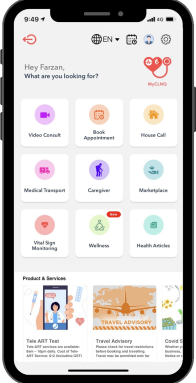Feeling pain when doing your business in the bathroom can be alarming and have you worrying the next time nature calls. If this only happens rarely, it is typically not a big deal. However, ongoing or severe pain during bowel movements is a glaring sign that something is amiss with your health and that you should not ignore it. Read on to discover the common causes of bowel movement pain to narrow down what you may be dealing with.
1. Intestinal causes
Three common health conditions involve pain associated with the bowel that can range from cramping to intestinal spasms: inflammatory bowel disease (IBD), irritable bowel syndrome (IBS), and colon cancer.
IBS and IBD share many overlapping symptoms, primarily cramping and abdominal pain. That said, these two conditions are not the same. For one, IBD is a group of autoimmune diseases like ulcerative colitis and Crohn’s disease. In contrast, IBS is not a disease nor involves inflammation but rather a group of symptoms that, while far from being a non-issue, do not threaten one’s health, unlike IBD.
Lastly, the more serious possible cause of painful bowel movements is colon cancer, which develops in the large intestine and influences bowel habits. Apart from abdominal pain, other prominent symptoms of colon cancer include bloating, cramping, and rectal bleeding.
All in all, be on the lookout for the common symptoms of IBS or IBD if you experience bowel movement pain, as either is the most likely cause.
2. Anal pain
At times, painful bowel movement has to do with moving stool out of the body and can stem from anal fissures or haemorrhoids.
An anal fissure is a tear in the anus lining that often results from passing hard stool. In contrast, haemorrhoids are generally caused by constipation, leading to swollen veins in the rectum and anus. Both conditions share similar symptoms that, apart from pain when defecating, include bright red blood on stools (or on the toilet paper after wiping) and rectal itching.
3. Endometriosis
Women experiencing gynaecological symptoms alongside bowel movement pain may be dealing with endometriosis, which stems from endometrial tissue growing outside the uterus. Endometriosis typically occurs in women who had periods early, experience short or heavy periods, have never given birth, or are going through menopause late.
This condition has a wide variety of symptoms on top of painful bowel movements, such as:
- Painful Urination
- Painful Intercourse
- Heavy Flow
- Menstrual Cramps
- Nausea, Bloating, And Vomiting
- Constipation And/Or Diarrhoea
- Pelvic Pain
- Infertility
4. Pregnancy
Lastly, pain during bowel movements is also common during pregnancy due in part to hormonal changes that affect intestinal sensitivity and function. Moreover, the weight of the developing foetus can also put pressure on the digestive tract and its organs, increasing the risk of painful bowel movement, constipation, bloating, flatulence or farting, and haemorrhoids.
Conclusion
Experiencing frequent or constant pain during your trips to the bathroom is a sign of a health problem. As such, do not write it off as normal, especially if the pain is persistent, severe or getting worse.
If you seek answers for your painful bowel movements, get a virtual consultation today with the MYCLNQ app. The leading app for telemedicine in Singapore, MYCLNQ allows you to access medical services at the palm of your hand, from supervised COVID-19 home testing to doctor consultations over video. To learn more about the medical services you can access on your phone, contact us today.










